Eat Protein Foods
Protein is an essential nutrient that our bodies require to function effectively. It is not only crucial for building muscle mass, but it also assists in maintaining healthy bones and skin, as well as supporting our immune system.
Indeed, protein is an indispensable nutrient that our bodies ardently need for optimal functioning. It plays a pivotal role not only in the process of muscle building, but it also extends its beneficial effects to other significant areas. For instance, it aids in the preservation and strengthening of our bones, ensuring they remain robust and resilient against potential injuries or diseases. This nutrient is also instrumental in promoting healthy, glowing skin, contributing to its elasticity, repair, and overall vitality. Furthermore, protein plays a crucial part in bolstering our immune system.

It does so by providing the necessary building blocks for antibodies, which are our body's primary defense mechanism against harmful pathogens and diseases. By regularly consuming sufficient protein, we can help fortify our immune system, enhancing our body's ability to ward off various ailments effectively.
So, protein's contribution extends far beyond muscle building. By incorporating an adequate amount of protein into our daily diet, we can improve our overall health and well-being in myriad ways. This underscores the importance of this vital nutrient in our lives, making it an absolute must-have for maintaining a healthy and balanced lifestyle.
Protein Foods are Good for You
Protein foods are beneficial as they provide essential amino acids that our bodies cannot produce. They not only help in repairing body cells but also aid in creating new ones.
This is especially important after a workout or any physical activity. Adding protein-rich foods to your daily diet is not just beneficial, it's crucial for maintaining optimal health and wellbeing. These power-packed foods serve as the primary supplier of essential amino acids that our bodies are unable to produce on their own. They function as the building blocks of life, fostering growth and repair in our bodies at the most basic cellular level. The role of protein extends beyond mere sustenance. It is instrumental in repairing damaged body cells, healing them from the wear and tear of daily life. Whether it's the recovery from a minor scrape or a significant injury, protein is the hero behind the scenes, mending and restoring our bodies to their prime condition.
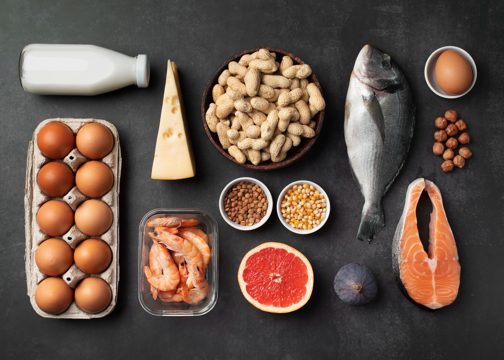
But proteins don't just mend, they also create. They aid in the formation of new cells, ensuring a continuous cycle of growth and rejuvenation within our bodies.
This is particularly crucial following a workout or any strenuous physical activity. During these periods of increased exertion, our bodies undergo a higher rate of cellular damage. A diet rich in protein is hence key to ensuring a speedy and efficient recovery. In essence, integrating protein foods into your dietary routine is akin to investing in an invisible health insurance policy. It's a subtle yet powerful way of contributing to your overall health, vitality, and longevity. So next time you plan your meals, remember to add a generous helping of protein to your plate!.
Tips for Vegetarians
For vegetarians, getting enough protein can be a challenge. However, plenty of plant-based foods are rich in protein.
These include lentils, chickpeas, tofu, quinoa, and many others. Including a variety of these in your diet can ensure you get all essential amino acids. Many individuals often assume that for those who follow a vegetarian lifestyle, maintaining an adequate protein intake can present a formidable challenge. This assumption, however, is far from the truth. In fact, a plethora of plant-based foods are abundant in protein, effectively busting the myth of protein-deficiency in a vegetarian diet. Among these protein-rich powerhouses are lentils, a hearty legume that can be wonderfully incorporated into soups, salads, and even as a meat substitute in tacos.
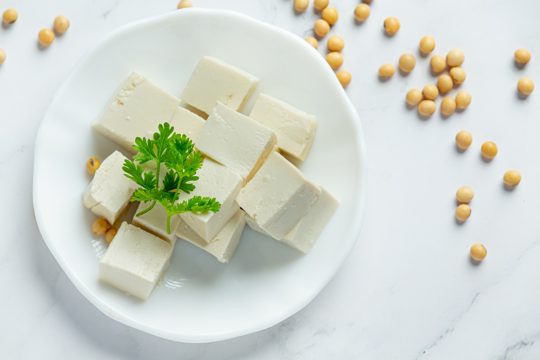
Chickpeas, another versatile legume, can be transformed into a delightful hummus, roasted for a crunch-filled snack or tossed into a salad for an additional protein punch. Tofu, a soy-based product, is not only a fantastic protein source but also a culinary chameleon, absorbing the flavors of the dishes it's added to.
Quinoa, often mistaken for a grain but actually a seed, is a complete protein that can replace rice in dishes or be used as a base in salads or breakfast bowls. And these are just a few of the many examples of plant-based proteins. Ensuring a variety of these protein-dense foods in your diet is not simply about meeting your protein requirements, but it is also about obtaining all the essential amino acids your body needs for optimal health. Each of these plant-based proteins brings with it a unique combination of essential amino acids, and by including a wide array of these foods in your diet, you are effectively ensuring that your body is receiving all the building blocks it needs to function at its best. So, as a vegetarian, rest assured that a protein-rich diet is not only achievable but also filled with a delicious variety of foods that cater to every taste preference.
Choosing and Preparing Healthy Protein Foods
Selecting lean meats, poultry, fish, beans, eggs, and nuts can provide high-quality protein. Preparation methods also matter; opt for grilling, broiling, or roasting instead of frying to keep your meals healthy.
When it comes to maintaining a balanced diet, being mindful of the food groups you incorporate is essential. One such group that should never be overlooked is protein. Choosing lean meats, poultry, fish, beans, eggs, and nuts not only provide your body with high-quality protein but also ensure that your meals are nutritious and flavorful. These choices play a crucial role in muscle building and repair, as well as contributing to your overall well-being. However, it's not just about what you eat, but also how you prepare it. The preparation method of your food significantly impacts its nutritional value.
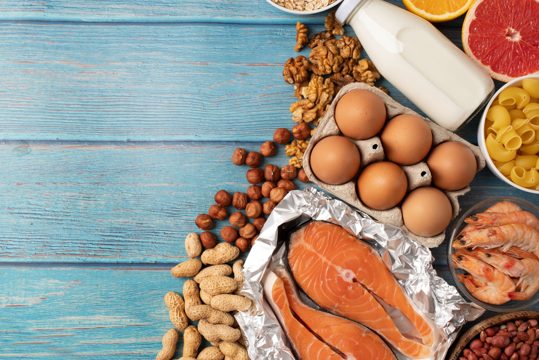
When possible, opt for healthier cooking techniques such as grilling, broiling, or roasting. These methods allow you to enjoy your food in its most natural state, without adding unnecessary fats or diminishing its nutritional content.
They can also help in bringing out the unique flavors of your food, making your meals not only healthy but also delicious. So, as you plan your meals, remember to prioritize lean protein sources and consider your preparation methods. It's a simple adjustment that can make a world of difference in your quest for a healthier lifestyle. Not only will you be nourishing your body with vital nutrients, but you'll also be treating your taste buds to a delightful culinary experience. In conclusion, a healthy diet is not about deprivation but about making informed and healthier choices.
Snack Ideas
Protein snacks are a great way to keep your energy levels up throughout the day. Try yogurt with nuts, hummus with whole-grain crackers, or a piece of fruit with a handful of almonds.
Protein snacks are an absolutely fantastic way to maintain your vitality and keep those energy levels surging throughout your entire day. They're not just healthy, but can also be incredibly delicious and satisfying. Delight in the creamy texture of Greek yogurt, topped with a sprinkling of nutrient-packed nuts such as walnuts or almonds, for a snack that's not only high in protein, but also rich in heart-healthy fats. Alternatively, why not enjoy the earthy flavor of hummus paired with the delightful crunch of whole-grain crackers? This combination doesn't just offer a protein punch, but also provides dietary fiber from the whole grains, contributing to your overall gut health.
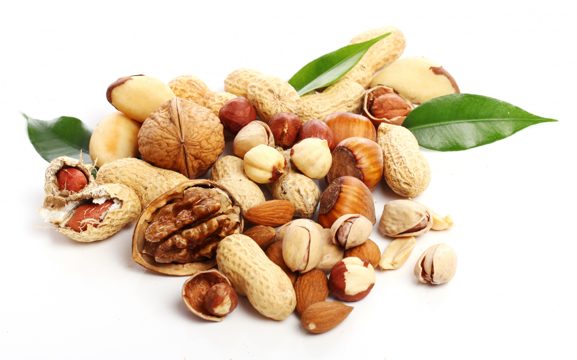
For fruit lovers, there's nothing like a fresh, juicy piece of fruit combined with a handful of protein-packed almonds. This combo is not only a sweet and savory delight, but it also provides a host of vitamins and antioxidants from the fruit, and healthy fats from the almonds.
Remember, it's not just about feeding your hunger, it's about nourishing your body with the right fuel. So, the next time you feel that mid-afternoon energy slump creeping in, reach for one of these protein-rich snacks, and power through your day with gusto.
How to Eat More Protein Foods that come from Plants
You can increase your plant-based protein intake by incorporating more legumes, whole grains, and seeds into your meals. Try adding chickpeas to your salads, spreading hummus on your sandwiches, or sprinkling chia seeds on your breakfast cereal.
Enhancing your health and wellness with plant-based proteins is not only achievable but delightfully delicious, too! By thoughtfully incorporating a variety of legumes, whole grains, and seeds into your everyday meals, you'll be increasing your protein intake and introducing an array of flavors and textures to your diet. Begin by exploring the world of legumes - from lentils to black beans, each one is a powerhouse of plant-based protein. Try adding a handful of hearty chickpeas in your fresh salads for a satisfying crunch or including kidney beans in your next chili for a robust and wholesome meal. Don't forget to include whole grains in your diet as well. Quinoa, for instance, is not just a complete plant-based protein but also wonderfully versatile. Cook it as a side dish, mix it in your salads, or use it as a base for your veggie bowls. It's sure to leave you feeling full and satisfied.
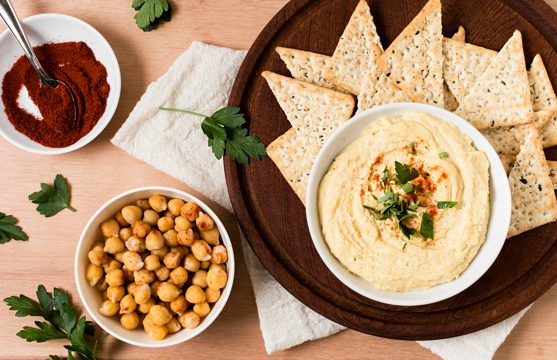
And let's not overlook the humble seed. From chia seeds to flaxseeds, these tiny nutritional powerhouses pack a solid protein punch.
Consider starting your day with a wholesome bowl of breakfast cereal sprinkled generously with chia seeds. Or, make your sandwiches extra nutritious by spreading a thick layer of protein-rich hummus, made from ground sesame seeds and chickpeas, on your whole-grain bread. In the realm of plant-based proteins, the possibilities are endless. With a bit of creativity and a dash of adventure, you'll not only be enhancing your protein intake but also making your meals more varied, colorful, and flavorful. Get started on your plant-based protein journey today, and discover the delight of eating for health and taste in equal measure.
The Importance of Balance
While protein is important, its essential to balance it with carbohydrates and fats, which provide the energy our bodies need to function. While it's undeniably true that protein plays a crucial role in our nutrition, it's equally important to maintain a healthy equilibrium with carbohydrates and fats.
These foods, often misunderstood or neglected in certain diet trends, are actually vital in providing the energy our bodies require to perform daily functions optimally. Carbohydrates, for instance, are the body's primary source of immediate energy. They fuel our muscles, feed our brain, and keep our metabolism ticking. On the other hand, fats, particularly the healthy, unsaturated kind, are necessary for absorbing vitamins, protecting our organs, and maintaining cell membranes. They also serve as a long-term energy source.

Incorporating a balanced mix of proteins, carbohydrates, and fats in our diet not only ensures that our bodies work efficiently but also contributes to overall well-being. This balance helps in managing weight, preserving muscle mass, and even enhancing the body's resistance to various diseases.
Moreover, it encourages a more mindful and enjoyable approach to eating. Rather than strictly focusing on protein consumption, we can explore a variety of nutritious foods that offer different, yet equally significant, health benefits. So, whether you're an athlete looking to optimize performance, a fitness enthusiast aiming for a leaner physique, or just someone who wants to maintain a healthy lifestyle, it's essential to understand that protein, carbohydrates, and fats all have their distinct, indispensable roles. Eating a balanced diet isn't just about staying fit or slim; it's about creating an eating pattern that nourishes the body, supports energy levels, and ultimately, supports a vibrant, energetic life.
Benefits of Protein Rich Diet
A protein-rich diet can aid in weight loss, muscle growth, and improved heart health. It can also help stabilize your blood sugar levels, making you feel more energized.
Incorporating a protein-rich diet into your daily routine can significantly aid in your journey towards weight loss, muscle growth, and enhanced heart health, acting as a pivotal cornerstone for a healthier lifestyle. High protein foods like lean meats, dairy, and legumes contribute to increased feelings of fullness, which in turn reduces the tendency to overeat and thus, can play an instrumental role in managing your weight. When paired with regular exercise, a diet high in protein can stimulate muscle growth and repair, helping you sculpt a fitter, leaner body. Moreover, proteins are not just about physical fitness; they are equally beneficial for your cardiovascular health. Eating more protein may lower your risk for heart disease by reducing factors such as high blood pressure and excess body fat, thereby strengthening your heart and improving overall cardiovascular function.
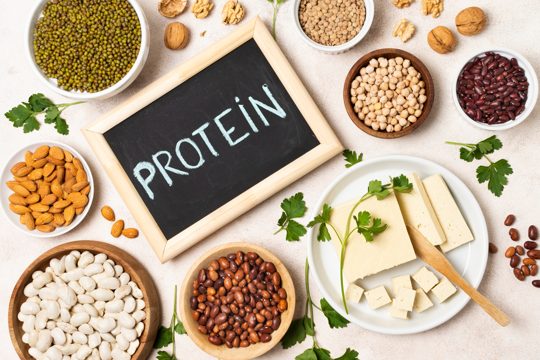
What's more, a protein-rich diet can help stabilize your blood sugar levels. Proteins take longer to digest than carbohydrates, providing a more gradual and sustainable energy release.
This can prevent sudden spikes and drops in blood sugar, keeping you energized throughout the day. By avoiding these energy crashes, you can increase your productivity, improve your mood, and reduce cravings for unhealthy snacks. Thus, incorporating more protein into your diet does not just nurture your physical wellbeing, but also promotes more balanced and vibrant energy levels, enriching your everyday life. Conclusively, a protein-rich diet is an effective and versatile tool on your path to a healthier, more energized lifestyle.
The Role of Protein in Weight Management
Protein can help you feel full longer, reducing the likelihood of overeating. Additionally, your body uses more energy to digest protein, which can help boost your metabolism.
There's a lot to be said about the dietary importance of protein. A diet rich in protein can help you feel satisfied for extended periods of time, minimizing the temptation to reach for unnecessary snacks and reducing the likelihood of overeating. This is due to protein’s incredible ability to stave off hunger pangs, creating a feeling of fullness that can last for hours. This means you’ll be less likely to succumb to unhealthy cravings in between meals or late into the night. Moreover, another wonderful benefit of protein is its role in boosting your metabolism.

The body must work harder to break down and digest protein compared to fats and carbohydrates, a process known as the thermic effect. This means that your body will naturally use more energy, therefore burning more calories during the digestion process, which ultimately aids in boosting your metabolic rate.
This increase in metabolism can prove beneficial in your weight loss journey, as a faster metabolism means your body is burning calories more efficiently. So, when you're planning your meals, remember to incorporate a good amount of protein. This macronutrient not only helps build and repair your body's tissues but also assists in maintaining a healthy weight and keeping your metabolic rate high. Whether you're a fitness enthusiast looking to build lean muscle or someone simply aiming to maintain a balanced diet, understanding the vital role of protein can make a significant difference in your overall health and wellness journey.
Protein and Exercise
Protein is crucial for repairing and building muscle tissue, especially after exercise. Consuming a protein-rich snack or meal after a workout can aid recovery.
Protein, that magical nutrient, plays a pivotal role in the complex process of repairing and building muscle tissue, particularly following a rigorous exercise regimen. It's akin to the bricks used to rebuild a house, acting as the foundational building blocks for muscle regeneration. The act of working out essentially breaks down your muscle tissues, creating tiny tears that are then repaired and strengthened by protein synthesis. This process is what actually leads to the growth and development of stronger, more resilient muscles. The importance of consuming a protein-rich snack or meal post-workout cannot be overstated.
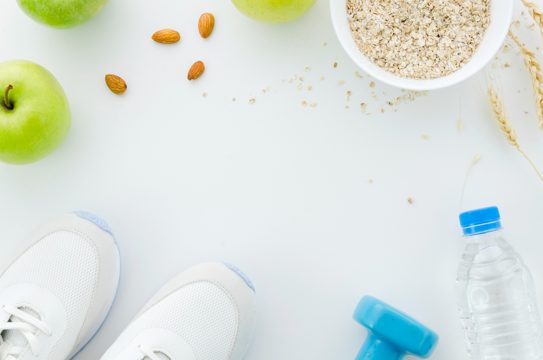
It's the nutritional equivalent of putting high-quality fuel in a race car after a demanding circuit. Your body, in its post-exercise state, is primed and ready to absorb nutrients, making it the perfect time to feed it the protein it craves for recovery.
This doesn't just translate to faster recovery times, but also aids in increasing strength and lean muscle mass, while reducing muscle soreness. So, whether you're a dedicated fitness enthusiast, a casual gym-goer, or someone just kick-starting an active lifestyle, remember to complement your exercise with a hearty dose of protein. From protein shakes to lean meats, eggs, and legumes, there are numerous delicious and convenient ways to incorporate this vital nutrient into your post-workout routine. By doing so, you're not only aiding your body's recovery but also setting the stage for your next workout victory.
Potential Risks of High Protein Diets
While protein is essential, consuming too much, especially from animal sources, can lead to health issues like heart disease and kidney damage. It’s important to balance protein intake with other nutrients.
Protein, while undeniably essential, plays a pivotal role in our daily nutrition and overall well-being. However, it's worth noting that overconsumption of this vital nutrient, particularly from animal sources, can potentially lead to a variety of health issues. Problems such as heart disease and kidney damage are not uncommon when protein intake becomes excessive. This is why it's absolutely crucial to maintain a healthy balance, not only of protein but of all nutrients in our diet. In addition to protein, it's vital to include other necessary nutrients in your daily regimen such as carbohydrates, fats, vitamins, and minerals.
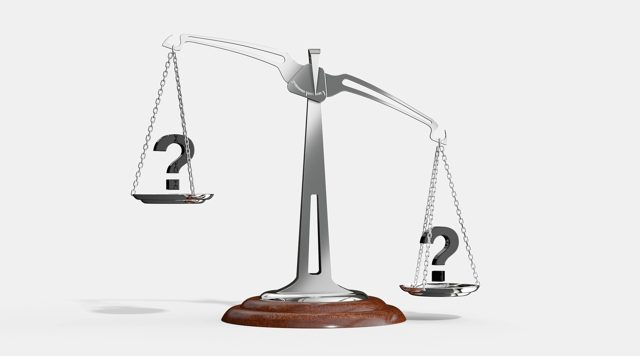
Striking the right balance of these elements ensures that your body functions optimally, leading to improved health and well-being. Moreover, it's equally essential to diversify your sources of protein.
While animal-based proteins are high in essential amino acids, opting for plant-based proteins like lentils, beans, and nuts can reduce the risks associated with overconsumption. These alternatives also offer additional health benefits such as fibre and antioxidants, contributing to a well-rounded, healthful diet. So, while it's important to ensure adequate protein intake, a balanced, varied diet remains key to maintaining good health and preventing potential health complications. Therefore, it's critical to approach protein consumption with an informed perspective, balancing it with other nutrients, and exploring a variety of protein sources for a healthier lifestyle.
Conclusion
Incorporating more protein into your diet can provide numerous health benefits. Whether you’re a vegetarian or a meat-eater, there are plenty of delicious and healthy protein foods available.
Remember to balance your protein intake with other nutrients for a well-rounded diet. Incorporating more protein into your diet is not merely a nutritional shift, it's an empowering lifestyle choice that can catapult your health to new heights. The benefits are manifold, from boosting your metabolism to aiding in weight loss, to promoting muscle growth and repairing body tissues. It's a vital part of our diet, fueling our bodies with essential amino acids and contributing to overall vitality. Regardless of whether you're a staunch vegetarian, a voracious meat-eater, or fall somewhere in-between, a veritable smorgasbord of protein-rich foods await you. There's a dazzling array of delicious and nutritious protein sources from the plant kingdom, such as lentils, tofu, quinoa and chickpeas, that can be savored in an array of exciting recipes. For the carnivores among us, protein is abundant in lean meats like turkey, fish, and chicken, as well as eggs and dairy products. Exploring these options can turn meal times into culinary adventures while keeping your protein intake high. However, remember the importance of a balanced diet.
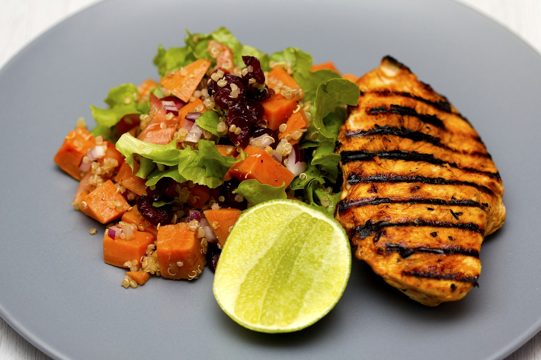
Protein is indeed vital, but it's just one piece of the nutritional puzzle. Complement your protein intake with a variety of other essential nutrients.
Integrate fruits, vegetables, whole grains, and healthy fats into your meals to ensure a spectrum of nutrients. It's about creating a symphony of flavors on your plate, but also a harmony of nutrients in your body. A well-rounded diet doesn't mean just focusing on one nutrient, but embracing the rainbow of nutrients that nature has to offer. By doing this, you're not only taking steps towards achieving a healthier physique but also fostering a more holistic well-being. In conclusion, incorporating more protein into your diet can indeed offer countless health benefits. Whether you are a vegetarian or a meat-eater, a varied, balanced diet that includes plenty of protein-rich foods can contribute to a healthier and happier life. But remember, the key is balance. Let your diet be varied and colorful, and let protein be the powerful note that complements the rest of your nutritional symphony.
About us
Welcome to HealsHub! Your go-to source for all things related to health and wellness! We're here to help you lead a healthier, happier life by providing you with the latest news, research, and advice on topics like nutrition, fitness, mental health, and more. Our mission is to empower you to take control of your health and well-being through education and inspiration. Whether you're looking to lose weight, build muscle, manage stress, or simply learn more about how your body works, you'll find everything you need right here on healshub.com. We believe that everyone deserves to live a healthy, fulfilling life, and we're committed to providing you with the tools and resources you need to achieve your goals. So take a look around, explore our articles and resources, and start your journey towards better health today!

